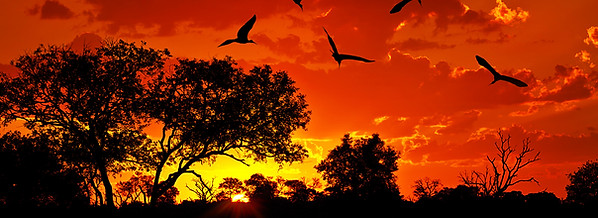


1. Geography
Africa is home to diverse ecosystems, from sandy deserts to lush rain forests.
Africa, the second-largest continent, is bounded by the Mediterranean Sea, the Red Sea, the Indian Ocean, and the Atlantic Ocean. It is divided in half almost equally by the Equator.
Africa's physical geography, environment and resources, and human geography can be considered separately.
Africa has eight major physical regions: the Sahara, the Sahel, the Ethiopian Highlands, the savanna, the Swahili Coast, the rain forest, the African Great Lakes, and Southern Africa. Some of these regions cover large bands of the continent, such as the Sahara and Sahel, while others are isolated areas, such as the Ethiopian Highlands and the Great Lakes. Each of these regions has unique animal and plant communities.
https://www.nationalgeographic.org/encyclopedia/africa-physical-geography/
2. Culture
In African culture, the “self” is not separate from the world, it is united and intermingled with the natural and social environment.
It is through relations with one’s community and surroundings that an individual becomes a person of volition, whose actions and decisions affect the entire group rather than just oneself.
There is a Xhosa proverb that is common to all African cultures and languages, “Umuntu ngumuntu ngabantu,” (“A person is a person through persons”).
The rich and diverse African culture varies not only from one country to another, but within each country as well. The culture of each ethnic group centres on family and can be found in each group’s art, music and oral literature.
Throughout Africa, the people speak a variety of languages, practice numerous religions and reside in various types of dwellings.
The vast majority of people living in Africa are indigenous; however, people from all over the world have migrated to Africa for hundreds of years. Arabs began crossing into North Africa from the Middle East in the 7th century, A.D., bringing with them the religion of Islam. Europeans began settling in the southern portion of the continent in the mid-17th century, as did South Asians, who settled in the areas of Uganda, Kenya, Tanzania and South Africa. Over the centuries, African culture has meshed with cultures from around the world, although much of traditional African customs have remained throughout.
Ethnic groups and African tribes have customs that are unique to their culture. The customs and traditions of each group have been woven into a tapestry as colourful and diverse as the people of Africa themselves.
3. What's Up
Highlights of this continent, What it is known for on the positive side of spectrum. Its achievements, something unique about it and a must-see.
PLACES TO VISIT

INTERESTED
TO GO?
Do not let yourself be stressed with all the arrangements and deals. Let us help you with all that we can - with our 24/7 service and global reach.

